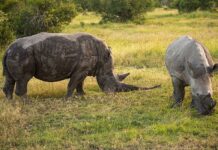A sharp reduction in the number of honeybees and their colonies has been reported in many countries of the world including in India. This is seen as a matter of huge concern as honeybees have played a very crucial role in pollination. Hence protection of honeybees is vital for our crops and plants, our food system and bio-diversity systems. Diversity of bee species is known to be related to diversity of plant species in forests and they exist in mutually protective relationships.
The decline of honey bees has led to concern among many health-conscious persons that there will be a decline in the availability of very healthy foods. They also point out that the only reason why there is still plenty of bottled and packaged honey available in the market despite the big decline in honeybee numbers in the wild is that a lot of artificial products are being added to honey so that the product may be available in plenty but its health benefits are not the same when compared to original and unadulterated honey.
Certainly these health and nutrition concerns are justified but the much bigger although perhaps less visible concern is the wider threat to our food system and bio-diversity. If natural pollination processes are disrupted then the threat to the potential of organic farming will be very high as organic farming depends more on natural systems. Hence it is a really important to protect honeybees by reducing the impact of the factors that have been harmful for them.
Two aspects of highly distorted farming practices which have been very harmful for honeybees are the introduction of genetically modified crops or GM crops and secondly the increasing use of chemical pesticides, insecticides and herbicides.
At times these two factors are also related as the introduction of some GM crops is accompanied by the use of some very harmful herbicides like glyphosate.
There has been a huge debate recently on the risks of glyphosate and those who have suffered have claimed and obtained huge damages due to the alleged poisonous impact causing serious disease.
If these are so harmful to human beings one can imagine the great harm caused to honeybees and other beneficial pollinating insects like butterflies.
Another very adverse factor relates to the introduction of exotic bees which often have a very harmful impact on local honeybee species. There have been cases of diseases spreading in local species so that these perish in large numbers. At the same time the exotic species may not be able to perform their expected role in new settings and a different climate.
When honeybees from a cold region have been introduced in a different region which is much warmer and experiences intense heat as well, the response of the exotic bee has been that I won’t go out in such heat! The result is that there is very little pollination and very little honey-making. In fact colonies of exotic honeybees sometimes collapse in a big way. Some of them may be artificially kept alive by feeding a lot of sugar and medicines, but overall their survival has been difficult.
It is important to learn from past mistakes and to take all protective measures to save honeybees as protecting honeybees is integral to protecting food systems and bio-diversity systems.
Bharat Dogra is a freelance journalist who has been involved with several social movements and initiatives. His recent book on survival issues and people’s response titled Planet in Peril has been published by Vitasta, Delhi.













